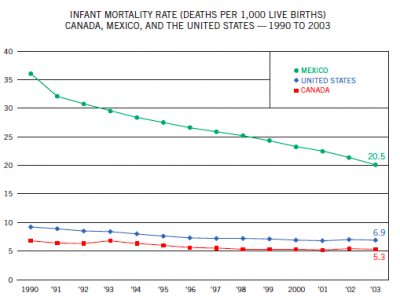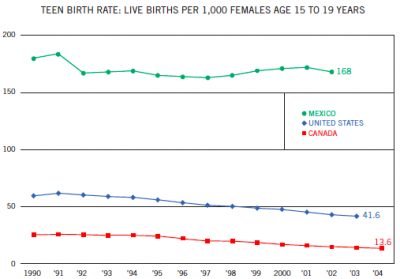Unintentional Injury
Unintentional injuries are the leading cause of death of children and youth, ages 1-24, across all three countries and all age groups. Car accidents account for 40% of unintended injury deaths of children ages 5-14 in North America.









